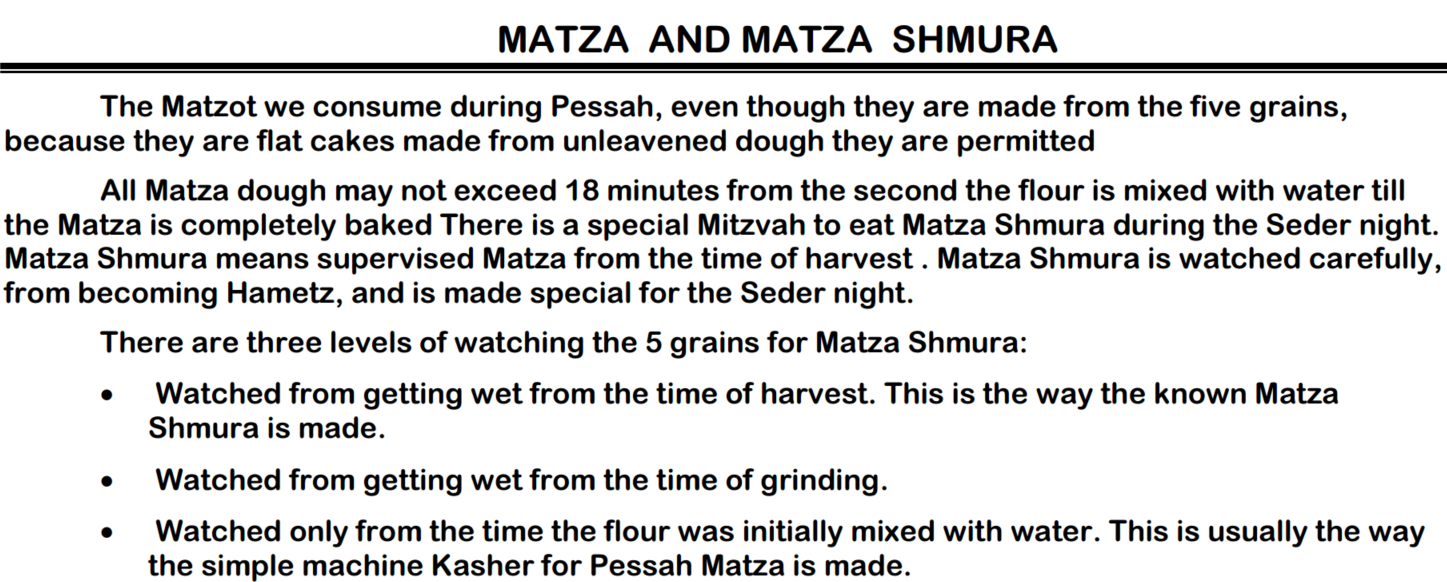I've been going over the halakhoth for baking matzah, and even though I hear from almost every Rabbi I've asked that the entire process must be done in under 18 minutes, I can't find any evidence for this claim in any halakhic works. And this notion isn't coming from just my local Rabbeim, this idea appears in books intended for mass audiences, online Orthodox Rabbi Responsa, and e-mails from the OU, published videos from matzah bakeries, etc. Here is a photo of a Pesach guide from my local Beith Din:
But when looking in all the major codes of halachah, they are all in agreement that the eighteen minutes refers to something completely different. All the major halakhic works use 18 minutes in reference to leaving the wet dough unattended.
According to the Mishneh Torah, one can knead the dough the entire day and it will never become chametz.
Rambam's Mishneh Torah - Chametz U'Matzah - Chapter Five
Halacha 13
As long as a person is busy with the dough, even for the entire day, it will not become chametz. If he lifts up his hand and allows the dough to rest so that [it rises to the extent that] a noise will resound when a person claps it with his hand, it has already become chametz and must be burned immediately. If a noise does not resound and the dough has lain at rest for the time it takes a man to walk a mil, it has become chametz and must be burned immediately.
Source: http://www.chabad.org/library/article_cdo/aid/937304/jewish/Chametz-UMatzah-Chapter-Five.htm
This is also the opinion of Yosef Karo and the Rema in the Shulchan Arukh
סעיף ב - לא יניחו העסה בלא עסק ואפלו רגע אחד. וכל זמן שמתעסקים בו, אפלו כל היום אינו מחמיץ. ואם הניחו בלא עסק שעור מיל, הוי חמץ. ושעור מיל הוי רביעית שעה וחלק מעשרים מן השעה. הגה: ויש להחמיר למהר בענין עשית המצות, כי יש לחש שהשהיות יצטרפו לשעור מיל או שיהיה במקום חם שממהר להחמיץ (הגהות מיימוני פרק ה' ומרדכי פרק אלו עוברין) ואחר שנתעסקו בבצק ונתחמם בידים אם יניחוהו בלא עסק מיד יחמיץ
Siman 459:2 - The dough should not be left idle for even a moment. As long as it is being used, even the whole day, it will not rise. If it is left idle for the time that it takes to walk a mil, it is hametz. A mil is a quarter of an hour plus a twentieth of an hour. Rem"a: One should be stringent to hurry when making matzos, because there is concern that the waitings will aggregate to a mil or that one will be in a warm place where rising happens quicker. After dealing with the dough and warming it with your hands, if it is left idle, it will rise immediately.
Source: https://en.wikisource.org/wiki/Translation:Shulchan_Aruch/Orach_Chaim/459
The Mishnah Berurah doesn't mention anyone who argues with these, so I assume he agrees. But the Mishnah Berurah does go on to say that "it becomes chametz immediately" doesn't mean immediately but rather "a short time" and it shouldn't be left unattended for even one moment lechatchila, but should be rolled out and immediately put in the oven.
מיד יחמיץ - ולפי זה צריך ליזהר מאד לאחר שערכו ורידדו המצה ומניחים אותה לפני המנקר שינקר אותה מיד וגם אחר הניקור יראו לרדותה תיכף לתנור כיון דלאחר שנתעסקו בה מחמצת מיד שמסלקין את הידים ממנו והעולם אין נזהרין בזה כ"כ ואפשר דמיד דקאמר המחבר לאו דוקא אלא ר"ל שיעור מועט ומ"מ לכתחלה בודאי יש ליזהר מלהניחה כך אפילו רגע אחד אם אפשר וכנ"ל בראש הסעיף ועיין מ"ש בביאור הלכה:
Consistent with these sources, in this Q&A, the OU refers to the 18 minutes as a limit to how long the mixture can be "left unattended."
In all of these works, the number of eighteen minutes ONLY refers to being left idle, and is NEVER used to convey an entire time in which the process needs to be completed. Even if you say that once the dough is warm it must be baked immediately after working with no idle time, you could still be kneading the dough for 3 hours, put it right in the oven, and still have kosher matzah.
So where does this notion (or possibly myth) of "must be finished baking within 18 minutes of flour contacting water" come from?

